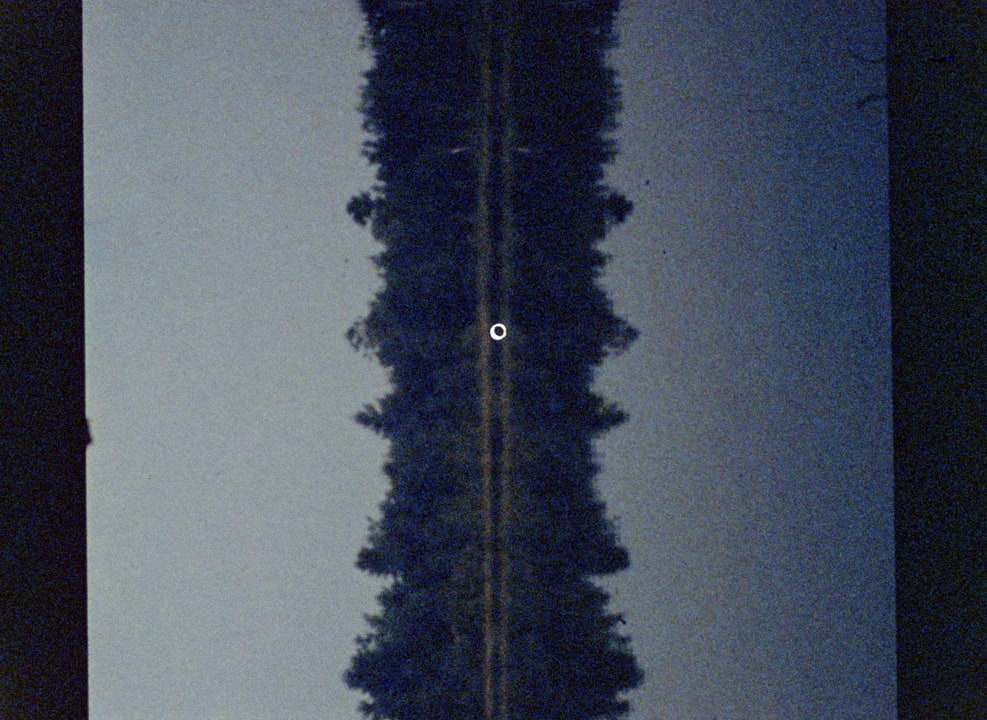A babyfaced David Cronenberg lies naked in bed with a woman and another man. Dim crimson light caresses the grandiose metal bedframe and intermingles with the smoky air. The image, which covers the right half of the screen, is an otherworldly crystallization of the fading 1960s. On the left, similar footage is put through a kaleidoscope to psychedelic effect. Colours spin, refract, and jangle dizzyingly around the frame.
You probably haven’t seen this film. Palace of Pleasure, directed by John Hofsess while he was studying at McMaster University in the 1960s, is rarely screened. Its experimental polyphony of acid trip visuals, heart-thumping electric rock, post-Freudian theory, and nudity has largely been lost to time.
Until now.
This February saw the birth of new Toronto-based multimedia publisher Black Zero. Palace of Pleasure, from which the publisher’s name is derived, is one of three films they released Blu-Ray restorations of at the launch. The other two films, Keith Lock’s 1975 Everything Everywhere Again Alive and Arthur Lipsett’s Strange Codes from the same year, are similarly rare entries in Black Zero’s genre of focus: underground Canadian experimental cinema.
In an interview with The Varsity, Black Zero founder and U of T instructor Stephen Broomer explained why he started the publisher. “Over the years, a need emerged for some kind of a home video label that was specialized in this way, because otherwise the only people who are seeing these films are people who live in cities and whose schedules happen to align with the one occasion in a 20- or 30-year period [that the film screens],” said Broomer. “And I’m not really that kind of urbanist. I’m not biased toward cities. I’m biased toward anyone who is curious about the world.”
For Black Zero’s launch releases, Broomer picked films that he has a deep personal attachment to. “These three films informed me a lot in my own artistic practice and my own critical practice. I’ve lived with them for a very long time,” said Broomer. “I’m sure that future releases… will be just as meaningful to me. But these three are like the rhythms of my soul or something, man.”
They also have serious critical weight. “These are sorely overlooked, valuable experiences of a Canadian cinema that has been, but also a Canadian cinema that might yet be,” said Broomer. “Each of these films represents threads and strands that have never become truly dominant… I really think that [each of] these films… represents a unique challenge to our perception.”
Black Zero is partially a local endeavor. The discs are sold at the UTSG campus-adjacent video store Bay Street Video, and the publisher soft launched this December when it sold its Everything Everywhere Again Alive disc at a free screening of the film on U of T campus put on by AD HOC, an experimental cinema screening collective that Broomer is part of.
But because the discs are also sold online, they have international reach. “I’ve sold some copies to Madrid, to Australia, to Japan,” said Broomer. “I’ve just been delighted by the response from people who are not necessarily experienced with Canadian cinema or experimental cinema, but who are interested in seeing things that haven’t been available to them before.”
In the past, these films have only been available to watch in public, at prescribed times. Now, people can take them into their homes, consume the detailed contextual material that accompanies them, and develop personal connections to them over multiple viewings. In the case of Palace of Pleasure, this portability allows the film to fulfill Hofsess’s vision of it as a therapeutic experience that draws out neurotic energies.
But it’s not just Palace of Pleasure. All three films work well as private, late-night experiences. “If you look at their motives, all three of them are about taking the viewer into a kind of alien headspace,” said Broomer. “[For example], Everything Everywhere Again Alive is a documentary film of a commune that, when it was first [screened] in Toronto, came with a note saying ‘best seen after midnight.’ These are films that have rhythms and aesthetics that aim at a kind of hypnotic commitment.”
As for the future? “I just want us to be able to continue… to connect with audiences,” Broomer said. “I would love to see Black Zero put out at least a couple of dozen rare, underappreciated Canadian films with this level of contextualization.”
To Broomer, for a critical discussion to take place about movies, their availability to a wider audience is imperative. “Otherwise, you end up with a very small number of voices… And I don’t believe in that,” he said.


